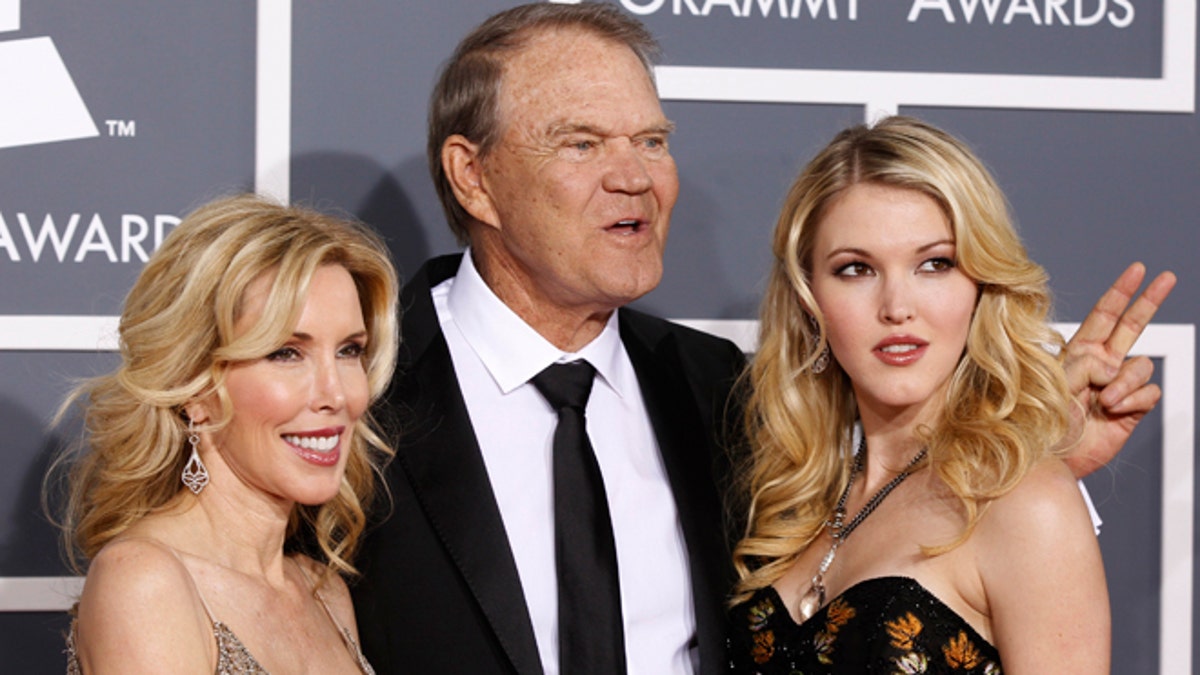
Glen Campbell, center, with his wife Kim, left, and daughter Ashley arrive at the 54th annual Grammy Awards in Los Angeles, California February 12, 2012. (Reuters)
Country recording legend Glen Campbell has been sued for breach of contract over his upcoming documentary film, "Glen Campbell: Ill Be Me," which chronicles the singer’s battle with Alzheimers disease. The lawsuit, filed in Los Angeles Superior Court (read it here), raises serious legal questions about the validity of contracts signed by people with Alzheimers, which scholars consider a legal gray area.
The suit, filed by the Record Company, an L.A.-based production and media company, alleges that Campbell — who had a string of hit records before and after starring opposite John Wayne in 1969’s "True Grit" — broke his written contract to jointly develop and produce the film. The suit alleges that the Record Company and Campbell, who also hosted a CBS variety program from 1969-72, agreed to collaborate with one another, on an exclusive basis, to develop, produce and exploit the project. According to the suit, the deal also called for James Keach, who produced the Johnny Cash biopic "Walk the Line," to direct the Campbell project. The suit alleges the agreement provided that in the event there is a development or production deal for the Project, [the Record Company] will be attached for the life of the Project in all forms and media.
Follow @FOX411Country for the latest country music news
The plaintiffs claim, however, that during the term of the contract, Campbell collaborated with entities other than the Record Company to develop, produce and exploit the project. The suit says Campbell and his Campbell Enterprises collaborated with Keach and his production company, PCH Films, and cut the Record Company out of the deal. Keach, who directed the film, is not named as a defendant in the suit.
An early draft of the contract at the center of the suit was signed by Campbell on June 7, 2011, just two weeks before he revealed publicly that he has Alzheimers. According to the suit, the contract was finalized on June 30 a week after Campbells announcement by and through [Campbells] authorized agent and manager of several years, Stanley Schneider.
Schneider did not return calls for comment.






